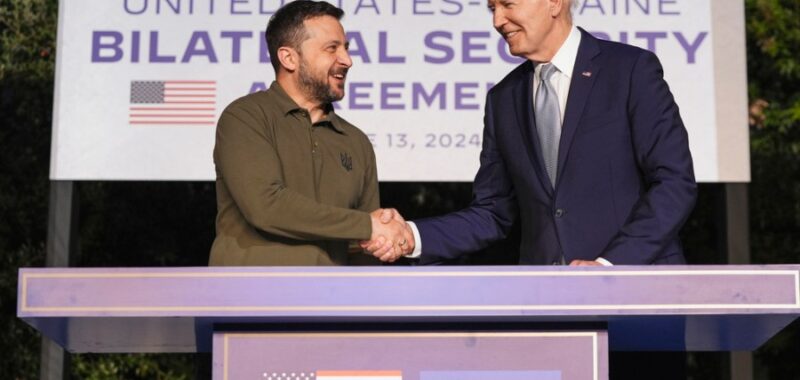
President Biden entered office with a wealth of foreign policy experience and the promise to restore American leadership on the global stage. Yet, as his term nears its end, his administration’s handling of international crises raises questions about the effectiveness of his approach.
While facing a complex and volatile world, Biden’s foreign policy has been marked by caution that at times borders on indecision, potentially undermining U.S. interests and global stability.
The conflict in Ukraine exemplifies the administration’s struggle to balance support with risk management. While providing substantial military aid, the Biden team has also imposed restrictions on the use of U.S.-supplied weapons. This cautious approach, aimed at preventing escalation with Russia, has inadvertently prolonged the conflict.
As the war enters its third year, both European allies and Ukraine have expressed frustration with what they perceive as unnecessary limitations on their tactical options. The administration’s slow-walking of critical decisions raises concerns about its ability to respond decisively to rapidly evolving situations.
In the Middle East, the recent escalation of violence between Israel and Hamas presents another significant challenge. Despite extensive diplomatic efforts, the administration has struggled to negotiate hostage releases or broker lasting ceasefires (at one point promising agreements on periodic basis that failed to materialize). The ongoing humanitarian crisis in Gaza and the potential for wider regional conflict underscore the limitations of the current approach.
Biden’s inability to rein in the violence or effectively engage with key regional players has led to increased anti-American sentiment across the Arab world. This situation highlights the complexities of Middle Eastern politics and the need for a more comprehensive strategy.
Perhaps no foreign policy challenge better illustrates the administration’s difficulties than its approach to Iran. Attempts to revive the nuclear deal have faltered, while Iran’s regional influence continues to grow. The controversial decision to unfreeze $6 billion in Iranian funds, though intended for humanitarian purposes, has been criticized for potentially empowering Iran at a critical juncture.
The lack of a clear strategy to address Iran’s nuclear ambitions and its support for regional proxies remains a significant gap in the administration’s Middle East policy. This absence of a coherent approach has implications not only for regional stability but also for U.S. credibility among allies and adversaries alike.
These challenges are part of a broader pattern of reactive rather than proactive policymaking. The chaotic withdrawal from Afghanistan, while ending a prolonged U.S. military engagement, raised serious questions about strategic planning and execution. Relations with China have oscillated between confrontational rhetoric issues (like Taiwan, human rights and trade) and diplomatic overtures yet have produced little meaningful change in Beijing’s behavior or its growing global influence. The administration’s attempts to counter China through alliances like the Quad and AUKUS have been slow to materialize into concrete actions.
In Latin America, the administration has struggled to articulate a clear policy direction, particularly on pressing issues like migration reform and regional stability. The administration is also still debating how to address ongoing political and economic crisis in Venezuela following the disputed reelection of President Nicolas Maduro.
President Biden’s extensive experience in foreign affairs was expected to be a strength of his administration. However, in practice, his cautious approach has often left the U.S. struggling to respond effectively to fast-moving global events.
While some degree of prudence is necessary in international relations, excessive caution can be as detrimental as recklessness. In Ukraine, it has potentially prolonged a brutal conflict. In the Middle East, it has allowed a regional war and humanitarian crises to fester. And globally, it has created a leadership vacuum that adversaries are all too eager to fill.
As we approach 2024, there is an urgent need for a reassessment of U.S. foreign policy strategies. The world faces increasingly complex challenges that demand not only experience but also adaptability and decisive action. The coming months will be crucial in determining Biden foreign policy legacy and his ability to reassert and define American leadership before the next president assumes office.
In a world that continues to test the limits of diplomacy and international cooperation, the U.S. must find a balance between cautious deliberation and bold action. The administration’s foreign policy legacy — and indeed, global stability — may well depend on its ability to make this shift in the next month or so.
Kurt Davis Jr. is a Millennium Fellow at the Atlantic Council and a member of the Council on Foreign Relations.

